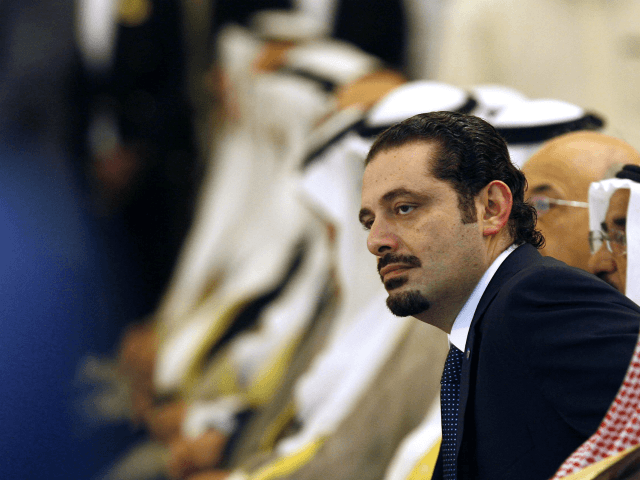The long and strange story of Lebanese Prime Minister Saad Hariri’s resignation appears to have ended on Tuesday with news that Hariri reached a deal with opposition leaders and formally rescinded his resignation, making him once again the Prime Minister of Lebanon.
Hariri suddenly resigned exactly one month ago during a visit to Saudi Arabia after voicing concerns for his safety if he continued in office. Accusations were made from various quarters of Lebanese politics—ranging from the Iran-backed terrorists of Hezbollah to Hariri’s boss, President Michel Aoun—that Saudi Arabia pressured Hariri into resigning, and was actually holding him under house arrest at his residence in Riyadh.
Hariri gave a televised interview denying these allegations that reassured few skeptics, since he looked haggard and uncomfortable, and seemed to be taking cues from someone off-screen. The government of France was considerably more successful at dispelling the notion Saudi Arabia was holding Hariri prisoner, but following a trip to Paris with a few stops on his way back, Hariri signaled his intention to retract his resignation and resume his duties. President Aoun was said to be instrumental in convincing him to return to his post.
Hariri formally rescinded his resignation on Tuesday following the first cabinet meeting since his surprise departure from office. The cabinet issued a statement calling upon “rival Lebanese groups to distance themselves from regional conflicts and the internal affairs of Arab countries,” as the Associated Press puts it, which would seem to address one of Hariri’s major concerns: Hezbollah’s involvement in conflicts such as the Syrian civil war.
The New York Times nevertheless credits the account of Saudi pressure forcing Hariri’s resignation as authentic and describes his un-resignation as a “setback for Saudi Arabia and its brash young crown prince, Mohammed bin Salman.”
“The episode was widely seen as an attempt by Saudi Arabia to counter its regional rival, Iran, by collapsing Mr. Hariri’s government, which includes Hezbollah, the Shiite militia and political party that is Iran’s Lebanese ally. But with Mr. Hariri and his government staying in place for now, that maneuver has failed, with Hezbollah’s position in Lebanon undamaged and possibly stronger,” the Times judges.
The result might prove to be something of a mixed bag for the Saudi agenda, since Hezbollah will apparently remain part of the Lebanese unity government—which has rarely been “unified” about anything except displeasure at Hariri’s resignation—but might begin pulling out of regional conflicts where it serves as Iran’s proxy army, assuming the promises made to Hariri are taken seriously.
ABC News portrays Hariri’s resignation as an “impulsive power play by one of the Trump administration’s most important allies in the Middle East”—namely, Saudi Arabia—which “might have brought the region dangerously close to war had it not been for deft intervention by the United States and France.”
In this account, Saudi Crown Prince Mohammed bin Salman decided Saad Hariri was too soft on Iran and Hezbollah, who oppose the Saudis in Yemen’s ugly civil war, so he hatched a plan to replace him with his older brother Bahaa, who was “extremely interested and angling for the position.”
According to ABC, the plan was scuttled when Bahaa failed to gain the confidence of the Washington foreign policy establishment, and the Hariri family proved unexpectedly resistant to benching Saad in favor of his older brother. France labored to persuade the Saudis to change their plans while the United States worked behind the scenes, convincing the Saudis that their desire to push back against Iran was laudable, but their gambit risked destabilizing Lebanon and complicating U.S. efforts in Syria and Iraq. Open U.S. support for Saad Hariri continuing as prime minister, plus French diplomacy that convinced Hezbollah and Iran to make some concessions, convinced the Saudis to back down.
ABC notes there is considerable irony in the fact that France helped restore Hariri as prime minister just as Lebanon is about to celebrate the 74th anniversary of independence from France.
Hariri is scheduled to return to Paris on Friday for talks on the political situation in Lebanon that will be attended by all five permanent members of the U.N. Security Council. That includes the United States, which will be represented by Secretary of State Rex Tillerson. A European diplomat told Reuters the goal of the meeting will be to “put pressure on the Saudis and Iranians” to stop interfering in Lebanon.

COMMENTS
Please let us know if you're having issues with commenting.